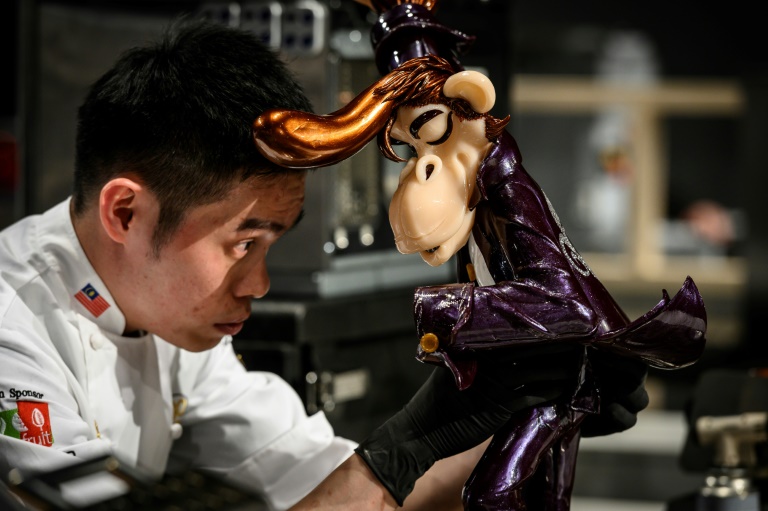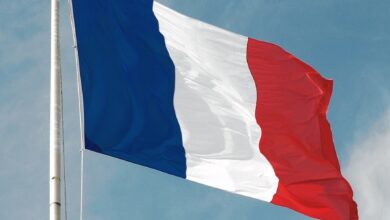
Contestants duking it out at this year’s World Pastry Cup in Lyon on Monday had to wrestle with a challenge previously unthinkable in France’s rich dessert history — no animal products at all: It’s got to be vegan to take the cake.
Twenty-one countries took part in the final of a competition organized every two years, under the banner of the Lyon Gastronomy Fair.
Competitors had 10 hours to prepare a dessert based on chocolate and honey, a frozen desert made of fruit, and one without any butter, cream, eggs or any other animal product.
In addition the teams had to produce three sculptures, of chocolate, sugar and ice cream.
To the naked eye, none of the creations looked much different from classic cakes, even though they made use of soy milk, almond and hazelnuts, and plenty of fruit.
The British team offered an all-white dessert filled with a beetroot-raspberry sorbet.
Egypt, meanwhile produced a macaroon by replacing the traditional airy egg whites with aquafaba, the water in which chickpeas have been cooked.
Not everyone was embracing the vegan concept, however.
“Butter and cream, that’s 100 percent the pleasure of eating. I don’t know how to explain it — fat is good for your morale,” said Philippe Rigollot, a pastry chef who won the contest in 2005.
Critics also say vegan desserts often end up too sugary, since there’s no animal fats to soften the sweetness.
“To make up for the lack of eggs and other fats in the emulsions candidates have been using carrageenans (edible seaweed extract) or xanthan gum, a bacteria” used as a thickening agent, said Ludovic Mercier, a pastry chef from Geneva.
But Malaysia’s enthusiastic team rose to the challenge, taking the cup Monday with a meticulous crafting of monkeys dressed like Elvis.
Japan, one of the few teams to include a woman, took second place, followed by a visibly disappointed Italy.
France, as the current title holder, did not field a team this year, but it remains the pastry champion with eight world cups since the competition began thirty years ago.
“In 1989 pastry was out of style. People knew about Gaston Lenotre but after that there really wasn’t anyone well known,” said Gabriel Paillasson, the cup’s founder.
But vegan patisserie is still a niche market in France and other western nations, though many cooks point out that vegetable-based cakes have a long history in Asia.




